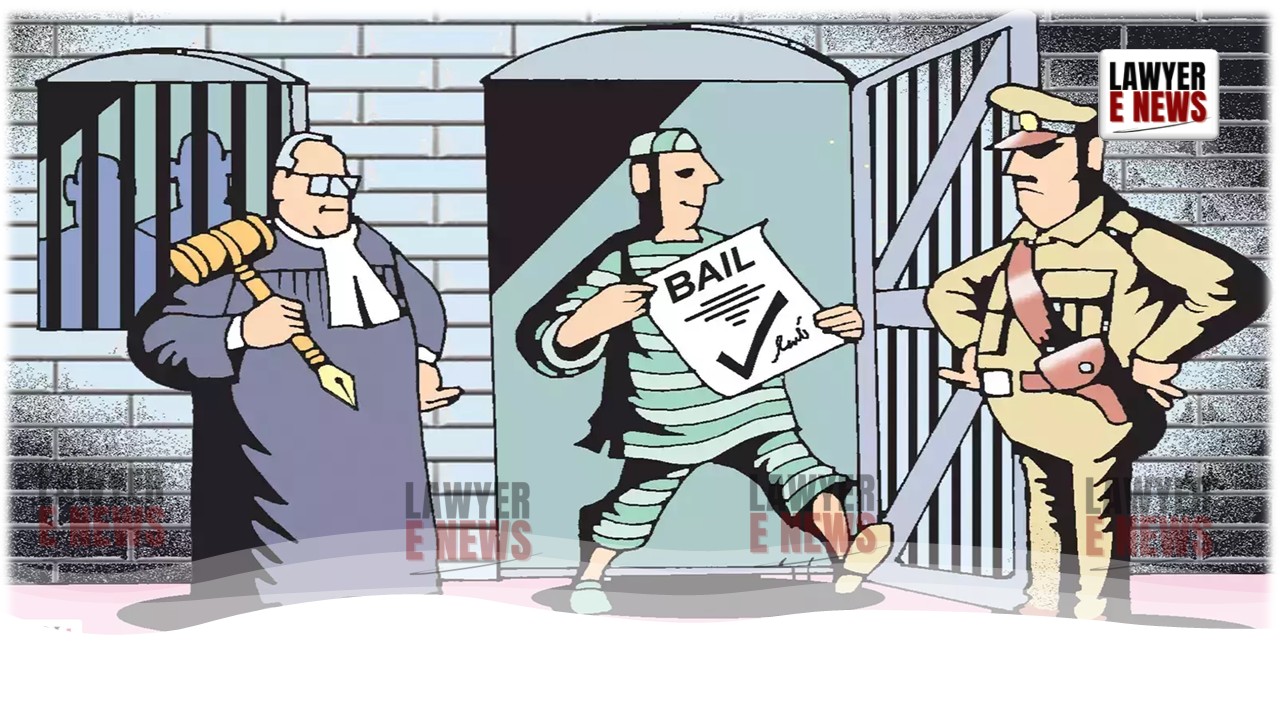-
by Admin
15 February 2026 5:01 PM



Bombay High Court granted bail to Anil Shivajirao Bhosale, former chairman of Shivajirao Bhosale Sahakari Bank Limited, under Section 436A of the Code of Criminal Procedure (CrPC). Bhosale, accused of laundering ₹147.30 crores under the Prevention of Money Laundering Act (PMLA), had spent over 3 years and 10 months in custody, exceeding half of the maximum seven-year sentence prescribed for his alleged offenses.
Justice Madhav J. Jamdar observed that “Section 436A CrPC, being a subsequent law, prevails over the stringent conditions of Section 45 of the PMLA,” and held that prolonged detention violates the right to liberty under Article 21 of the Constitution.
“State’s Failure to Conclude Trial Cannot Justify Unlimited Incarceration”
The Court emphasized the need to harmonize statutory restrictions under Section 45 of the PMLA with constitutional rights. “It is the constitutional obligation of the State to ensure trials are concluded expeditiously. Prolonged incarceration without trial amounts to a failure of the State in upholding the constitutional rights of citizens, including the accused,” the Court held.
Bhosale, accused of misappropriating public funds and facilitating fraudulent loans during his tenure as chairman, was in custody for 3 years and 10 months in the PMLA case and over 4 years and 11 months in total, with the trial yet to commence. Observing the trial’s likely long duration, the Court declared: “If a trial cannot proceed even after an accused has undergone one-half of the maximum period of imprisonment, there is no justification to deny him this lesser relief of bail.”
“Stringent Bail Conditions Must Not Become Tools for Indefinite Detention”
Addressing the interplay between Section 45 of the PMLA and Section 436A CrPC, the Court relied on the Supreme Court’s judgment in Vijay Madanlal Choudhary v. Union of India (2022), which affirmed that “Section 436A is a statutory recognition of the right to a speedy trial and overrides the stringent bail provisions of the PMLA.”
Justice Jamdar reiterated that “the presence of statutory restrictions does not oust the ability of constitutional courts to grant bail where incarceration becomes unreasonably long.” The Court warned against using provisions like Section 45 of the PMLA as tools to prolong detention without trial, stating: “Inordinate delay in the conclusion of trials and the higher threshold for bail cannot coexist. Constitutional courts cannot allow stringent bail conditions to become instruments for indefinite detention, especially when there is no likelihood of trial concluding within a reasonable time.”
“Recovery of Public Funds Reduces Gravity of Continued Incarceration”
Although the allegations involved the laundering of ₹147.30 crores, the Court acknowledged that a substantial portion of the embezzled amount had been recovered or secured. The Economic Offenses Wing and the Enforcement Directorate recovered ₹53.17 crores by auctioning Bhosale’s properties and secured an additional ₹43.21 crores through ongoing one-time settlement offers.
Justice Jamdar noted that “substantial recovery of the proceeds of crime mitigates concerns of financial harm to the public and supports the case for bail, particularly in light of prolonged detention.”
“Stringent Conditions Will Protect Public Interest While Upholding Liberty”
Granting bail, the Court imposed stringent conditions to ensure public interest was safeguarded. It required Bhosale to furnish a personal bond of ₹10 lakhs, barred him from entering Pune District except for trial, and mandated regular appearances at the ED’s Mumbai office.
The Court underscored the principle that “bail is not to be withheld as a form of punishment,” observing that indefinite incarceration without trial violates the fundamental tenets of justice.
“Right to Liberty Must Be Balanced Against Trial Delays”
While acknowledging the seriousness of the offense, the Court held that “the right to liberty enshrined under Article 21 is overarching and sacrosanct” and cannot be curtailed indefinitely due to the slow pace of investigations or trials. The Court emphasized: “Prolonged detention without trial cannot be justified by the gravity of allegations alone. The principle of fairness under Article 21 ensures that any deprivation of liberty must be reasonable, just, and proportionate.”
The Bombay High Court’s judgment in Anil Shivajirao Bhosale v. Directorate of Enforcement sets a significant precedent for balancing stringent bail provisions with constitutional rights. The decision reiterates that “stringent laws must be implemented in harmony with constitutional protections,” particularly when prolonged incarceration threatens to reduce the presumption of innocence to a mere formality.
Date of Decision: January 24, 2025
